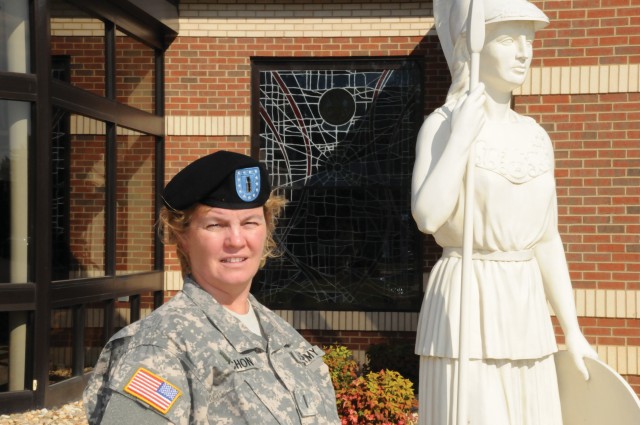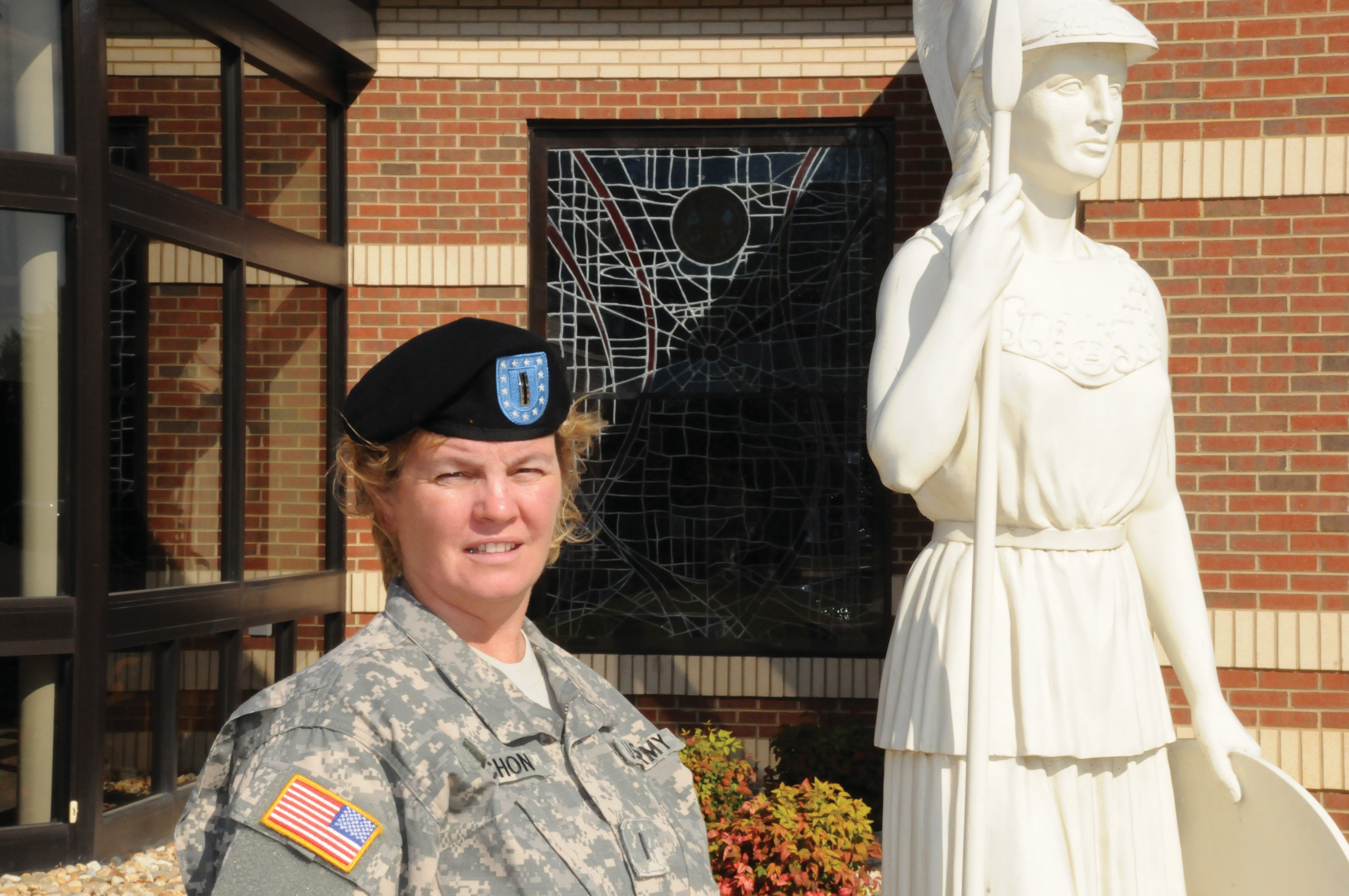FORT LEE, Va. (Oct. 29, 2008) -- Few women who served in the Women's Army Corps are still in uniform today. Only those who have served at least 30 years have the distinction as former WAC Soldiers and can remember a time when they served under Pallas Athene collar insignia.
Chief Warrant Officer 5 Vickie Arnold Vachon, a logistics systems analyst at U.S. Army Materiel Command Logistics Support Activity, Redstone Arsenal, Ala., has served for 32 years and has seen the Army transform through the years.
A major part of this Army transformation is the acceptance of women in different careers, said Vachon.
"We're not just clerical people anymore; we're kind of more along the same lines as the business world," she said. "I think we get better recognition than the business world does, but it gives the guys something else to base their performance on. They were so used to working alongside men, and now they are able to diversify and be able to get a woman's point-of-view instead of a man's point-of-view."
Over the years Vachon has seen the opportunities gradually improve.
"At first, we were molded to stay in our clerical and nurse lanes; then it became let's have people down in the motor pool," Vachon said. "You saw the stigmatism 'you're a girl, what do you know about making a truck run'' Then they started realizing that some of these girls grew up with dads that took them out there and they did get their hands greasy, and they enjoyed it. They were probably better mechanics than the males were.
"My side of the house is logistics, we do a lot of paperwork, but we can go out there and drive forklifts, still go out there and move supplies, and process parts and all that," she continued. "We don't need some guy standing there to move stuff for us."
Vachon remembers her early days in WAC as a time of integration. During basic training at Fort Jackson, S.C., she said her male drill instructor reinforced the Army ideals of a changing force.
"We were all turning in our linen on the back of the dock of the building for our basic training and these guys came by on the truck and were hooting and hollering at us," she said. "Our drill sergeant stopped them and pulled them off the truck and told them 'these are ladies, and you will not treat these ladies with wolf calls, it is not tolerated.'
"They all had to apologize and do pushups before they were able to get back on the truck," she continued. "Our drill instructor gave us a speech that we were ladies and we would be treated like ladies, but we had to act like ladies."
Vachon arrived at her first duty station with a military occupational speciality of teletypewriter repair and soon ran into issues.
"When I got to my first assignment, my platoon sergeant looked at me and said 'you will be the major's secretary up on staff,'" she said. "I said 'no, I am trained as a 31 Juliet, and I will work as a 31 Juliet. This is my contract and this is what it says I'm going to do.' "I was the only female in the platoon, and the platoon sergeant didn't like the idea," said Vachon. "The guys and I all got along; we had an understanding that there were certain things I couldn't pick up because it was too heavy for me, but I was beside them and we would do it together."
In Vachon's first formation, even her uniform inspections were questionable because men still were not used to women in the ranks.
"When I got there, they didn't know the uniform regulations at all - they had little cheat cards - when they did inspections, they used the cheat cards," said Vachon. "It took them a long time for them to finally say men have to understand (the uniform regulations)."
Vachon knows that the Army has diversified when she observes women rise to ranks previously unseen, such as Lt. Gen. Ann E. Dunwoody, who is set to receive her fourth star soon and assume command of Army Materiel Command.
"Over the years, you walk in and it's not such a shock to see a woman (in leadership)," Vachon said. "It's just been a slow process integrating them."
Vachon has served for more than 30 years of active federal service, and she plans to spend a total of 40 years in.
"The jobs have been wonderful; they tell you you'll know when you have enough, but I haven't had enough yet," she said. "But so far it's been great assignments, I've seen a lot of the world and learned a lot of different things. It's a different Army than when I came in."


Social Sharing